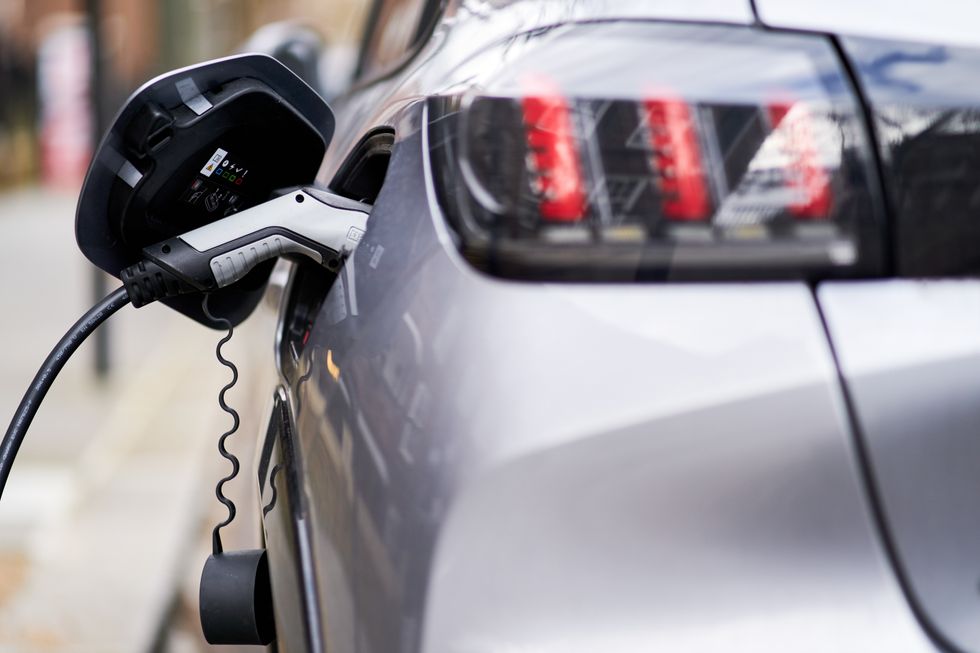
A majority of car dealers believe the net zero laws will change
PA
A timeframe of the electric car rollout is expected to be announced within weeks
Don't Miss
Most Read
Trending on GB News
A majority of car dealers believe the 2030 ban on the sale of new petrol and diesel vehicles will either be changed or scrapped altogether.
New data has found that a staggering 85 per cent of car dealers do not believe the ban will go ahead as currently planned.
From 2030, the Government will end the sale of new petrol and diesel vehicles, followed by a similar ban affecting hybrid vehicles five years later.
Research has now found that two-thirds of dealers believe the ban will be delayed, with a further 18 per cent thinking it will be scrapped altogether.
Despite the looming ban, more than half of used car dealers do not currently stock alternative fuel vehicles (AFVs) including electric vehicles.
Shockingly, just one per cent of car dealers plan to invest in electric vehicle charging points within the next six months.
Lisa Watson, director of sales at Close Brothers Motor Finance, commented on the data and highlighted how changes to support the uptake of electric cars was not happening quickly enough.
She added: “We know that consumers have mixed emotions about the switch to electric; with only one in ten saying they are planning a pure electric car as their next purchase in recent research.
“Dealers are joining them in their belief that change will not happen fast enough to meet the current plan to ban the sale of all new solely petrol and diesel vehicles in the UK in 2030.”
Prime Minister Rishi Sunak is reportedly planning to unveil a “strict timeframe” regarding the ban on new internal combustion engine vehicles.
According to The Times, a final plan to enforce the transition of electric cars is expected within weeks.
This will follow the pledge to introduce a Zero Emission Vehicle (ZEV) mandate with manufacturers required to have 22 per cent of their car sales be electric by 2024.
Lisa Watson continued, saying: “There are still major perception barriers to overcome.
“Given the current economic climate and financial pressures faced by many UK households, the initial outlay costs are prohibiting more widespread EV adoption in the UK.
“Costs combined with the lack of infrastructure is impacting consumer demand, which in turn impacts the stock that dealers are selling on their forecourts.
“If the Government wants to meet its 2030 target, then it will need to look at how best to encourage, support and incentivise both motorists and dealers.”
LATEST DEVELOPMENTS:

Many believe EV infrastructure is not at the required levels yet
PA
Data from the Society of Motor Manufacturers and Traders (SMMT) in August found that battery electric cars took the highest monthly market share for the year, accounting for one in five new cars on the road.








